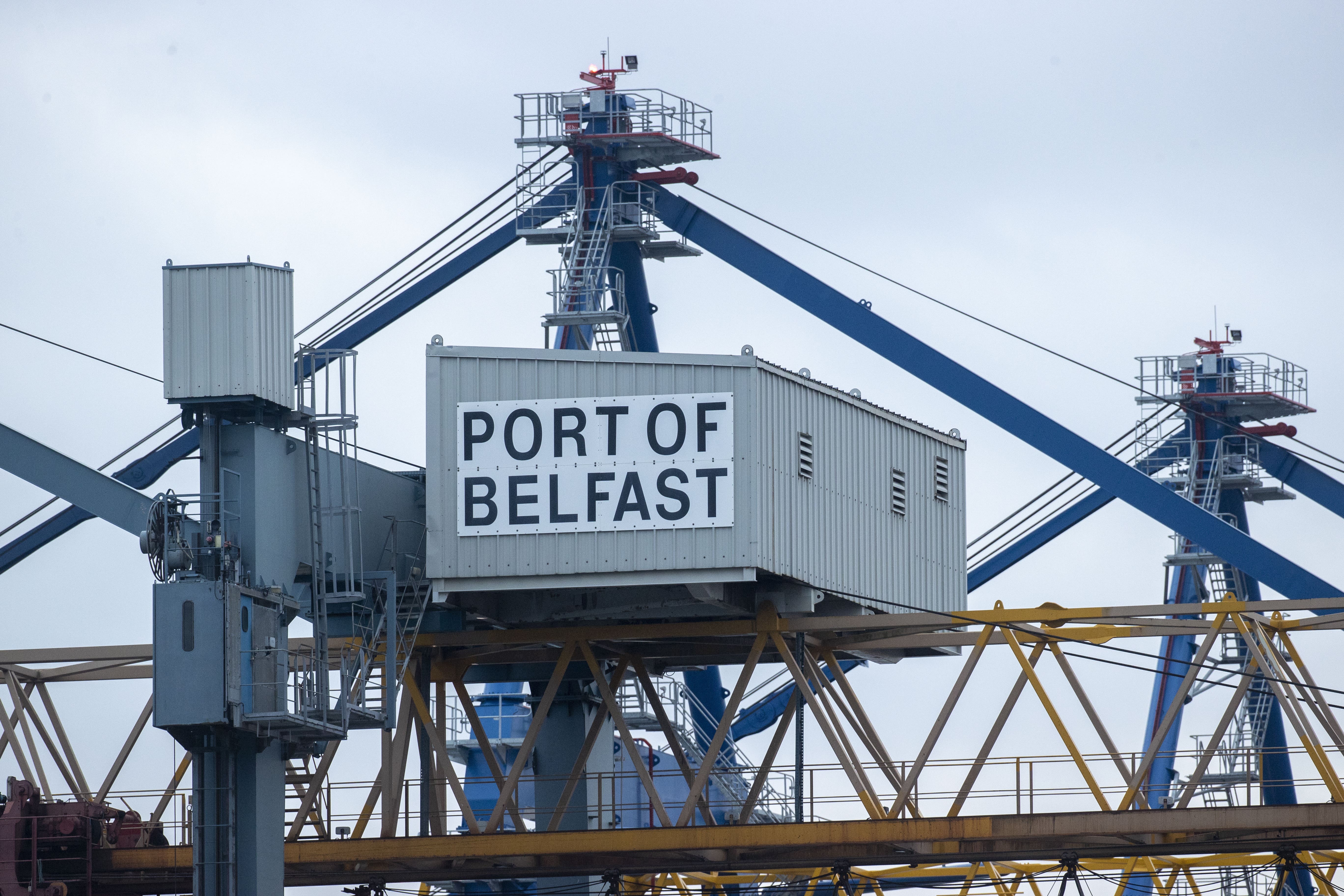Full implementation of NI Protocol ‘would halt east-west trade within 48 hours’
A Lords Committee was warned that British companies were already pulling out of the Northern Ireland market.

Full implementation of Brexit’s Northern Ireland Protocol would see British trade to the region grind to a halt within 48 hours, a major haulage company has warned.
Paul Jackson, group commercial director of McBurney Transport, branded the Irish Sea trading arrangements a “complete disaster” as he gave evidence to a Lords committee in Belfast.
Mr Jackson was one of several business figures negatively affected by the protocol who relayed their experiences to Lords examining the Government’s proposed legislation that would empower ministers to scrap the arrangements.
Ballymena-based McBurney Transport, which employs 800 people and has an annual turnover of £130 million, is the biggest shipper of goods on the island of Ireland and carries 105,000 trailers across the Irish Sea annually.
Mr Jackson told the Lords Committee on the Northern Ireland Protocol Bill that the trading arrangements, which came into effect in January 2021, were reducing choice and ramping up prices for consumers in the region.
“The Northern Ireland Protocol for us as a company has been a complete disaster. It simply does not work for our customers,” he said.
“There is a reduction in choice and there is an increase in costs, because we can see what manufacturers are sending into Northern Ireland on a daily basis and every week that reduction in choice becomes more and more apparent.”
The protocol was agreed by the UK and EU as a way to avoid a hard border on the island of Ireland post-Brexit. It instead shifted the requirement for checks and customs declarations to trade crossing the Irish Sea.
The arrangements have only been partially implemented. The UK has unilaterally and indefinitely extended a series of grace periods that limit the red tape.
London and Brussels have recently resumed negotiations around trying to find a way to avoid full implementation and agree a system involving less bureaucracy.
The Government has said it will take unilateral action to replace the existing arrangements – by way of the NI Protocol Bill in Parliament – if a deal with the European Commission fails to materialise.
Mr Jackson said even with grace periods in operation the red tape was causing major problems for his industry. He challenged those who were urging “rigorous implementation” of the full protocol.
Unfortunately, a large percentage of our customers in GB have just decided that Northern Ireland is only 2% of their overall sales process and they just said 'you know what, we're not going to supply'
“Rigorous implementation – I often say to myself, go ahead do it, pull the trigger and have rigorous implementation but make sure anybody in this country has been out and their freezers are full, because you will bring a logistics solution to Northern Ireland on its knees within 48 hours, because the east-west movement of traffic will stop.
“So that is the solution of full implementation that the EU are talking about.”
He said McBurney Transport had had to build an extension at its headquarters in Ballymena to house 10 staff to deal with protocol paperwork.
Mr Jackson said many businesses in Northern Ireland were also now at a competitive disadvantage to those in Britain.
He stressed that physical checks at the ports were not the issue – rather the paperwork required by the protocol.
This is 21 months later, and we are banging our head off brick walls watching the bureaucratic mess imposed upon us as hauliers, that we're having to impose on our customers to make this work
“Checks has never ever been a problem,” he said.
“In the 21 months, we’ve had nine vehicles checked. So it’s irrelevant.
“Everybody’s talking about checks. It’s just totally irrelevant. Unfortunately, our local media, our local MLAs talk about vehicle checks. It’s not vehicle checks, it’s the paperwork and the absolute farce and bureaucratic mess of paperwork having to be done in the background. It’s all time, it’s all cost and it’s all money.
“Somebody has to pay for it. Unfortunately, a large percentage of our customers in GB have just decided that Northern Ireland is only 2% of their overall sales process and they just said ‘you know what, we’re not going to supply’.”
He added: “This is 21 months later, and we are banging our head off brick walls watching the bureaucratic mess imposed upon us as hauliers, that we’re having to impose on our customers to make this work.”
The committee also heard that the majority of young people “hadn’t a clue” what the protocol was.
Brian Dougherty, of the North West Cultural Partnership, said what was of greater concern to unionists was that they did not feel their voices were being heard, and that that had left “a very vulnerable disconnect”.
Bookmark popover
Removed from bookmarks